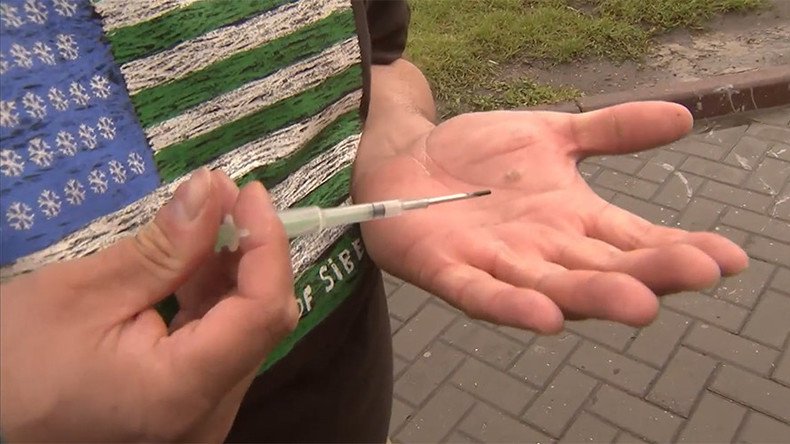Siberian ‘cyber-doctor’ has 6 microchips implanted to open doors, store data

A Siberian doctor has implanted six microchips under his skin to turn his body into a no-nonsense multi-functional gadget. This has opened quite a few doors for Aleksandr Volchek – including literally.
Some of the chips function as swipe cards, letting him into his home and office.
Volchek, a Novosibirsk-based obstetrician-gynecologist, calls himself a crypto anarchist. He opens doors and pays bills with a wave of his hand, and it works like magic. This is a time-saving convenience, the tech-savvy physician says.
A syringe with a thick needle is needed to inject a microchip.
The size of a standard chip is 2 × 12mm, and the smallest one is no more than 1.5 × 8mm, the doc says.
The chip is not permanently implanted, and can be easily extracted from the body the minute you want to get rid of it.
Volchek was first microchipped in 2014, with a control card for a Siberian ski resort.
Since then the doctor added to his arsenal two chips to enter his office, one transport chip, and as well as two memory cards, capable of storing almost a kilobyte of information.
“It's a business card,” he proudly says, holding his phone against his wrist.
“Here you can store 888 bytes, a nice round number. I store all of my possible passwords on one of the chips, unencrypted."
Volchek’s appetite for microchips is clearly insatiable.
“I would like to have a chip for payments,” he tells RT’s video agency Ruptly.
“My dream as a crypto anarchist is to have an identification tool for encrypting an electronic signature, and of course for medical application. I also want an implanted glucometer that will resolve a ton of problems many are currently facing, but research is still underway.”
Several dozen employees of a Wisconsin technology company recently received microchip implants in their hands during a ‘chip party’.
Some 41 of the firm’s 85 employees agreed to be voluntarily microchipped, saying it felt like a brief sting, AP reported earlier this month.
The chip will allow employees to open doors, log on to computers or buy snacks by simply waving their hand. The company’s vice president of sales, Melissa Timmins, saying she hopes to use it to get into her car or go shopping one day.
Microchips injections are also gaining momentum in Europe.
Employees at the Swedish startup hub Epicenter hold special celebrations for those who “join the club” and get implanted with microchips the size of rice grains.
“The biggest benefit I think is convenience,” Patrick Mesterton, co-founder and CEO of Epicenter told AP in April, unlocking a door by waving near it.
“It basically replaces a lot of things you have, other communication devices, whether it be credit cards or keys,” he added.













